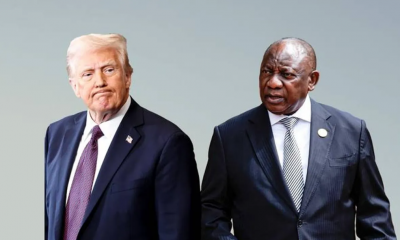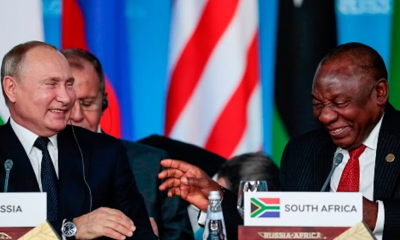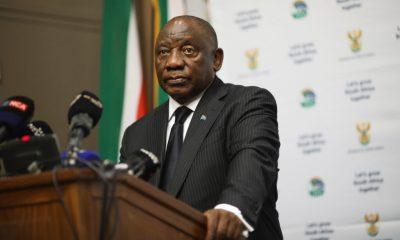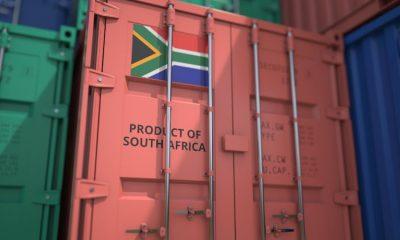411
Trump’s “Instinct”-Driven Tariff Strategy Leaves World Scrambling for Economic Survival
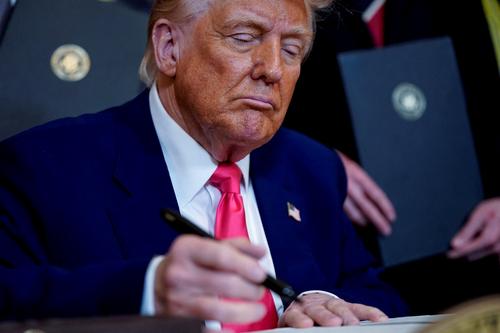
In what may be the most chaotic phase of global trade in recent history, US President Donald Trump has turned tariff negotiations into a high-stakes guessing game, driven not by data or diplomacy—but by sheer instinct.
Speaking at the White House, Trump recently claimed that future tariff exemptions would be determined by “instinct,” not paperwork. “You almost can’t take a pencil to paper,” he said. “It’s really more of an instinct than anything else.” These are decisions with trillion-dollar consequences—made, apparently, on a whim.
After abruptly suspending tariffs on several countries, Trump gave the world just 90 days to strike new bilateral deals. If not, high tariffs are back on the table. Though he expressed optimism about reaching a deal with China, his unpredictability has left both allies and rivals scrambling.
The Great Backtrack: 75 Countries, Now Just 15
Initially, US officials said over 75 countries had reached out to negotiate. That number quickly dropped to 15, according to Kevin Hassett, Director of the White House National Economic Council. Despite the dramatic shift, this chaos is not accidental—it’s strategic.
Trump’s real goal? To dismantle the multilateral trading system and force nations into one-on-one negotiations where the US holds all the power.
“Kissing My Ass”: The Language of Economic Bullying
Trump’s rhetoric has become increasingly undiplomatic. He mocked other countries at a dinner, saying they were “kissing my ass” for tariff deals. Canada, a long-time US ally, was told it would “cease to exist as a viable country” without compliance. At another point, Trump implied that Canada should just become the 51st US state.
This kind of bullying isn’t just verbal. The real-world consequences are severe.
Japan’s Concessions, America’s Escalation
Take Japan. After Trump introduced global steel and aluminum tariffs, Japan responded diplomatically. Japanese ministers visited Washington, pointed to their economic contributions, and even offered a $44 billion natural gas project as a gesture of goodwill.
None of it worked.
Instead, the US introduced new tariffs on imported cars—a direct hit on Japan’s economy. With automobiles accounting for nearly 30% of Japan’s exports to the US, the message was clear: weakness invites aggression.
This echoes Japan’s experience in the 1980s with the Plaza Accord and the Semiconductor Agreement—deals that triggered Japan’s decades-long economic stagnation.
Canada’s Counterattack: A Rare Pushback
Canada and Mexico also tried to negotiate. But Trump imposed tariffs anyway. Canada retaliated with a 25% surcharge on electricity exports to the US—targeting states like Michigan and New York.
The result? Trump walked back threats to double steel tariffs.
Canada’s new prime minister, Mark Carney, made it clear: “Our old relationship of steadily deepening integration with the United States is over.”
China Holds Its Ground
China, meanwhile, has refused to bow.
While Trump maintains a tough stance, he also seems desperate for China to return to the table. The reason? His tariffs are hurting the US economy. JPMorgan has warned of an impending recession, and 92% of economists in a Bloomberg survey said tariffs are increasing that risk.
Even former Federal Reserve Chair Janet Yellen has called Trump’s tariffs “the worst self-inflicted wound” the US could make.
But China has made its terms clear:
-
To talk? The door is open.
-
To fight? We’ll see it through.
The Big Picture: A Global Shakedown
This isn’t just about steel or cars—it’s about a fundamental shift in how the US sees the world. Trump’s strategy is to force countries into submission, using tariffs as economic weapons. Nations that resist are punished. Those that comply are still belittled.
Stephen Miran, Chair of the Council of Economic Advisers, was blunt: countries should “simply write checks” to the US Treasury.
Gone is the era of quiet diplomacy. In its place is something closer to open extortion.
The World Responds: Stand Tall or Be Drained
For many developing nations, the writing is on the wall: negotiate individually and be bled dry—or unite and resist. But resistance comes at a cost.
Still, more and more countries are questioning whether the old reliance on the US is sustainable.
For China, the key is to stay the course and rely on its internal strength. For others, it may be time to rethink trade alliances and invest in regional resilience.
Because one thing is clear: the rules of global trade have changed—and instinct is the new law.
{Source: BusinessTech}
Follow Joburg ETC on Facebook, Twitter , TikTok and Instagram
For more News in Johannesburg, visit joburgetc.com



